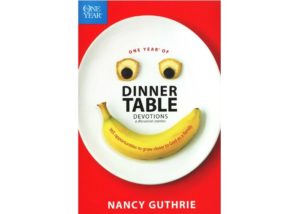The Measure of Success (2014, B&H Publishing Group: Nashville, Tennessee) is a book written by Carolyn McCulley and Nora Shank. No matter your age or profession, any woman would benefit from the wisdom that McCulley and Shank share. The book at 168 pages is a fairly easy read and structured in three sections: the story of work, the theology of work and the life cycle of work.
McCulley and Shank write with a tight structure which is user-friendly and easy to follow. In these sections, McCulley and Shank address historical contexts of women and work, what the Bible has to say about work, particularly that of women and the cyclic nature of work for women. Whether in the home, community or outside the home, the writers emphatically show that all women should work and work hard, as this is a Biblical mandate. In a refreshing way, McCulley and Shank do not provide a ‘one-size-fits-all’ approach to women and work, rather encourage women to seek God’s wisdom through prayer and surrender and carefully prioritise all for God’s glory and kingdom building.
As a stay-at-home mother, this book provided great food for thought in how I use my time. I found it helpful that the writers’ aim to cast a broad look at women and work- including women at all stages and in all positions in life. While showing that a women’s work could involve a career and children, and often may need to for financial reasons, I found their admonition to women a helpful reminder: “For most of us in our childbearing years, our investment will be in very little people. While we recognise that not every woman can and will stay home with her children during their entire childhoods, we will point out that Scripture has a very high view of parenting. If God gives you children, the training and nurturing of these children can’t be done in the leftovers of a busy day” (p.138).
As a fairly ambitious woman (something I have felt is a negative thing), I found this book helpful in highlighting what Godly ambition is and how to use it. McCulley and Shank aim to motivate women to work wherever they are in a diligent and productive way, always with the gospel firmly in our minds. I was also challenged not to judge fellow women so harshly and not to buy in to the “Mommy Wars” that so often occur between working women and stay-at-home mothers.
I guess in buying and reading this book, I wanted to have my question answered: “Is it biblical for a mother of young children to work?” By the end of the book, my question remains. I found McCulley and Shank shared insightful anecdotes and carefully instructed women to see work as so much bigger than just about either a career or staying at home, rather looking at how we as women are being productive and contributing in our families, in our churches and in our communities for the gospel. I have grown in my understanding and appreciation for women and acknowledge McCulley and Shank’s position that women of young children may have to work outside the home. Through careful research and illustrations the writers’ encourage women at all stages to think creatively about work and keep it in perspective.
McCulley and Shank also emphasise the changes in roles for women throughout history and how this affects a woman’s work throughout her life in all stages. McCully and Shank divide these ‘stages’ into growing up, launching to adulthood, balancing family and career, coaching and leadership in the workplace outside the home and the open nest. This is a broad coverage of these areas with the women providing helpful advice and illustrations.
Generally, the writers’ aim to provide practical application of Biblical principles, though at times I feel they may allow cultural generalisations to dictate more than was probably necessary. An example of this is the section of advice to women “Launching to Adulthood” (pp. 116-129). In this chapter, the writers encourage women to ensure they do not drink too much alcohol as “alcohol fuels many escapades that wouldn’t have stared in the sober light of day”(p.127) and to be careful to recognise vulnerability when on a business trip as accessibility can lead to sexual sin and ungodly intimacy. While I do not think there is anything wrong with their advice it was not the Bible’s authority that they rested on in these sections, rather used other people’s experiences to add to their argument. I found that the ‘prescriptive’ advice in this chapter was inconsistent with the majority of the rest of the book, where the writers’ encouraged women to exercise godly wisdom in the different situations they found themselves in and rested in the Bible’s authority as the Word of God and ultimate guide for life.
Overall, I highly recommend this book and am grateful that I have read it. It has helped shape my views on God’s instructions for all people to be diligent workers, in this case women and helped me have a fresh view of my days at home with my ‘little people’. I am thankful for the careful research that McCulley and Shank applied in writing this book and would highly recommend it as a great read to any woman, young or old.
Generally, the writers’ aim to provide practical application of Biblical principles, though at times I feel they may allow cultural generalisations to dictate more than was probably necessary. An example of this is the section of advice to women “Launching to Adulthood” (pp. 116-129). In this chapter, the writers encourage women to ensure they do not drink too much alcohol as “alcohol fuels many escapades that wouldn’t have stared in the sober light of day”(p.127) and to be careful to recognise vulnerability when on a business trip as accessibility can lead to sexual sin and ungodly intimacy. While I do not think there is anything wrong with their advice it was not the Bible’s authority that they rested on in these sections, rather used other people’s experiences to add to their argument. I found that the ‘prescriptive’ advice in this chapter was inconsistent with the majority of the rest of the book, where the writers’ encouraged women to exercise godly wisdom in the different situations they found themselves in and rested in the Bible’s authority as the Word of God and ultimate guide for life.
Overall, I highly recommend this book and am grateful that I have read it. It has helped shape my views on God’s instructions for all people to be diligent workers, in this case women and helped me have a fresh view of my days at home with my ‘little people’. I am thankful for the careful research that McCulley and Shank applied in writing this book and would highly recommend it as a great read to any woman, young or old.
Purchase from Book Depository here.








